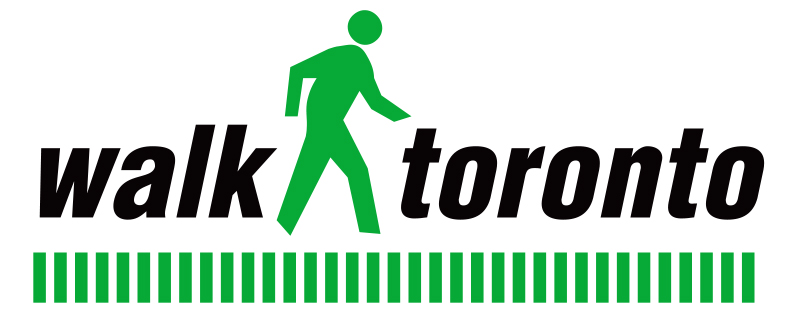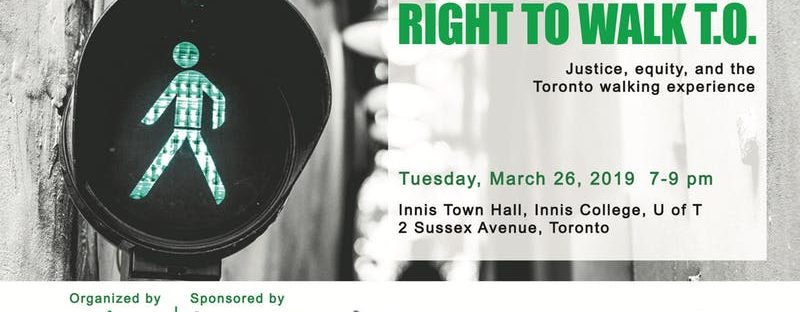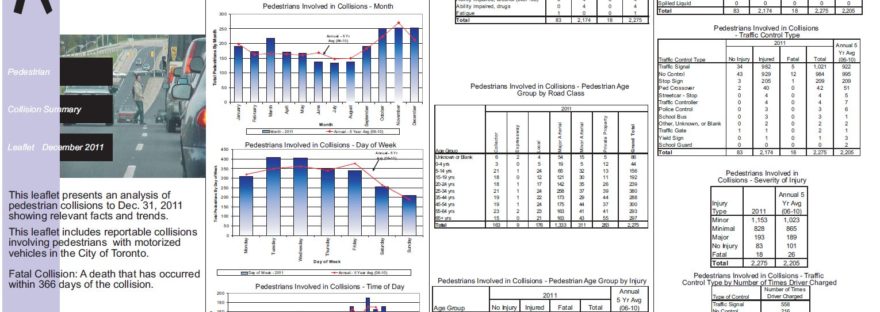Walk Toronto is calling on the Government of Ontario to reverse its plan to strip the regional transportation agency Metrolinx of its mandate to develop an “integrated, multimodal transportation network” for the Greater Toronto Area.
The province’s omnibus Bill 57 currently includes a provision to change this mandate to just “an integrated transit network”, removing any responsibility for, among other issues, integrating walking and cycling with the transit system. Furthermore, Bill 57 eliminates references in the original Act to taking into consideration all modes of transportation, including walking and cycling.
The bill is being discussed at the Standing Committee on Finance and Economic Affairs this week (week of Dec. 3, 2018).
Walk Toronto has submitted a detailed assessment of the issue to the standing committee, prepared by Walk Toronto steering committee member Michael Black.
Walk Toronto’s main concern with Bill 57, Restoring Trust, Transparency and Accountability Act, 2018, is in regards to Schedule 25, which amends the Metrolinx Act, 2006. We recommend that section 2 of Bill 57 (p. 64-66) be stricken out, and that the original provisions of sections 5 and 6 of the Metrolinx Act, 2006 be preserved in their entirety.
In Walk Toronto’s view, narrowing the focus of Metrolinx’s activities will lead to disinvestment in the provision of ‘first and last mile’ access to GO stations and surface transit stops for pedestrians, leading to:
- A more dangerous, stressful, polluted and less convenient walking experience for those GO customers who still choose to begin and/or end their trip on foot
- A decrease in the viability of any future, transit-oriented development, the success of which relies not just on good transit but also on good pedestrian connections
- An increase in vehicular congestion both at and within the general proximity of GO stations
- A significant rise in the need for additional parking for GO customers, resulting in Inflated costs of up to $1 billion
- A shifting of resources towards the periphery of GO’s catchment area at the expense of major urban areas (which are particularly dependent on multimodal access) …
- Putting the prospects of projects such as SmartTrack at risk
Read the full report (PDF) to see further details and analysis.


